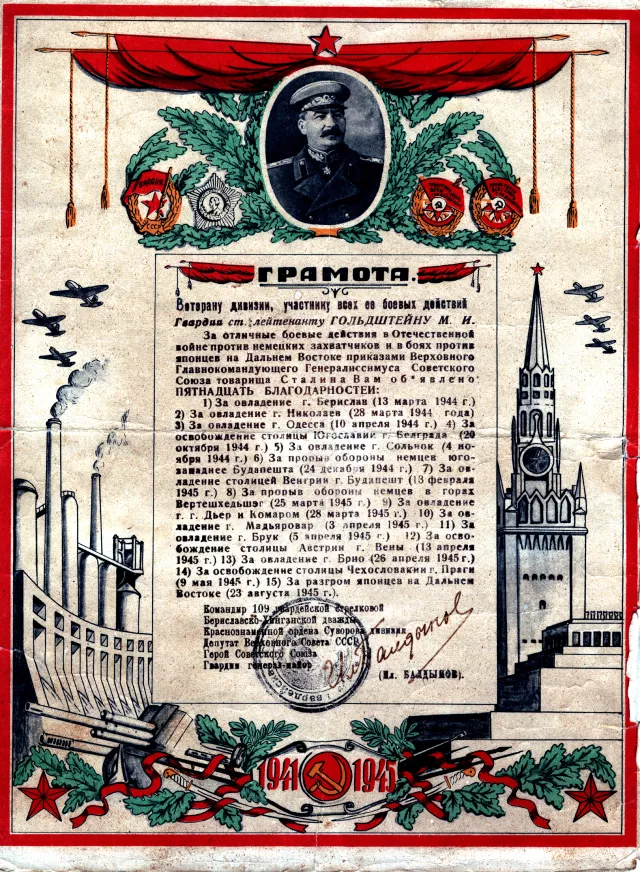Meyer Goldstein's army certificate
A certificate given to me by the command of my division after my demobilization.
When the Germans began to bomb Makhachkala, I sent my mother away. I took her to the port and sent away because we already knew by that time that the fascists killed the Jews. However, the Germans never occupied Makhachkala. We began to fight from Gudermes. They had already occupied the Northern Caucuses, Krasnodar, Rostov and reached Terek. And we began to take part in military actions in Gudermes (the second largest city in Chechnya). When we arrived there, the city was empty, there were no locals at all. Some locals had been moved out by the authorities - those who showed hostility towards the Russians. But in general they all went into the mountains. From there I began to move westward with my regiment. We liberated Taman, then the south of Ukraine, Berislav (our division was called 'Berislav'), Kakhovka, many other cities and towns. We already knew about ghettos in the cities, about Jews being shot, about death camps. And right before the Soviet troops came into Nikolayev, which was close to my heart because I studied there, the Germans gathered all young people, so that they would not go to the Soviet Army, told them they would be sent to Germany, and shot them all at the train station. When we entered the city, they were lying there, all dead.
In general, there were no divisions between Jews and non-Jews or other nationalities during the war. In my regiment, battery commander was Berdichevsky, chief of the medical unit was Gleiman, his assistant - a Jewish woman from Leningrad. She now lives in Israel. But in the headquarters I was the only Jew.
All were equal at war - all were in trenches, all were equally cold, lacked food, slept where they could and when they could - only in breaks between fights. We wrote letters home and were killed all equally, no matter what nationalities we belonged to.
Then we liberated all the capitals - Belgrade, Budapest, Vienna, and Prague. We ended the war in Prague and celebrated victory there. From there we were put on trains and sent to the Far East to fight against the Japanese.
So, the war was finished, but they did not let me leave the army. My regiment commissar summoned me and said, 'You will not be transferred to the reserve until you join the Communist Party'. So, they forced me to do it, I was not ready to. So, in April 1946 I joined the Party and in June I was demobilized.














